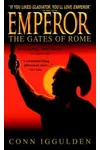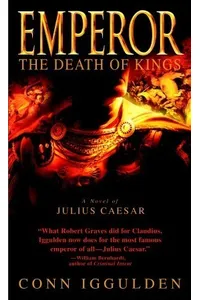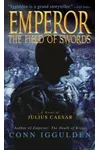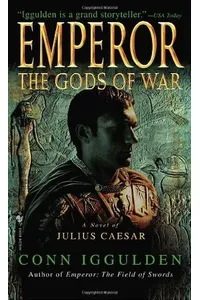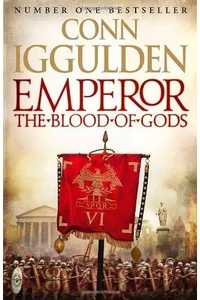Step into the thrilling world of Emperor, where the rise and fall of Julius Caesar unfolds in a whirlwind of political intrigue, epic battles, and heart-wrenching betrayals! Conn Iggulden’s Emperor series, a five-book historical fiction saga, sweeps readers into the grandeur and grit of ancient Rome. With vivid storytelling and larger-than-life characters, it brings one of history’s greatest figures to life in a way that’s both exhilarating and deeply human.
Whether you’re a history buff or just love a good tale of ambition and loyalty, this series offers a front-row seat to Rome’s most dramatic moments. From Caesar’s daring conquests to the infamous Ides of March, Emperor is a page-turner that blends fact with fiction in a way that feels like stepping into a Roman forum.
How Emperor Began
British author Conn Iggulden kicked off the Emperor series in 2003 with The Gates of Rome, driven by a lifelong fascination with history sparked by his mother, a history teacher. Inspired by the sparse records of Julius Caesar’s early life, Iggulden saw a chance to weave a gripping narrative around the legendary figure. His goal? To craft a story that felt as vibrant as Rome itself, blending meticulous research with creative liberties to fill historical gaps. The result was a series that hooked readers worldwide, earning praise for its cinematic scope and fast-paced action.
The Heart of Emperor
The series spans five novels, each capturing a pivotal chapter in Caesar’s life. The Gates of Rome introduces young Gaius Julius Caesar and his friend Marcus (later Brutus), trained by a fierce gladiator as Rome teeters on the edge of civil war. The Death of Kings follows Caesar’s rise as he battles pirates and navigates political rivalries, while Brutus grapples with power’s cost. The Field of Swords showcases Caesar’s conquests in Gaul and Britain, and The Gods of War builds to his tragic betrayal by Brutus and Cleopatra’s allure. Finally, The Blood of Gods shifts to Octavian, Caesar’s heir, as he avenges his adoptive father’s death.
Emperor dives deep into themes of power, loyalty, and betrayal, set against the opulent yet brutal backdrop of ancient Rome. Iggulden’s style is immersive, with vivid battle scenes and intricate character arcs that make Caesar, Brutus, and others feel like flesh-and-blood figures. While historical purists note inaccuracies—like Caesar and Brutus being portrayed as peers—the series prioritizes drama over precision, creating a saga that’s as entertaining as it is evocative.
Why Emperor Resonates
The Emperor series has left a lasting mark on historical fiction, offering a gateway to ancient Rome for readers who might shy away from dense history books. Its blend of action, romance, and political scheming appeals to fans of epic sagas, earning comparisons to Robert Graves’ I, Claudius. Despite criticism for historical liberties, the series’ emotional depth and thrilling pace have won over readers, with many praising Iggulden’s ability to make Caesar’s world feel alive. Its influence endures, inspiring readers to explore Rome’s legacy through a lens of adventure and human drama.
- About Emperor
- Publication: 2003–2013
- Books: 5 (The Gates of Rome, The Death of Kings, The Field of Swords, The Gods of War, The Blood of Gods)
- Genre: Historical Fiction
- Setting: Ancient Rome, 92 BC–44 BC and beyond
Ready to march alongside Julius Caesar? Grab The Gates of Rome and dive into Emperor’s world of glory, betrayal, and epic adventure!
